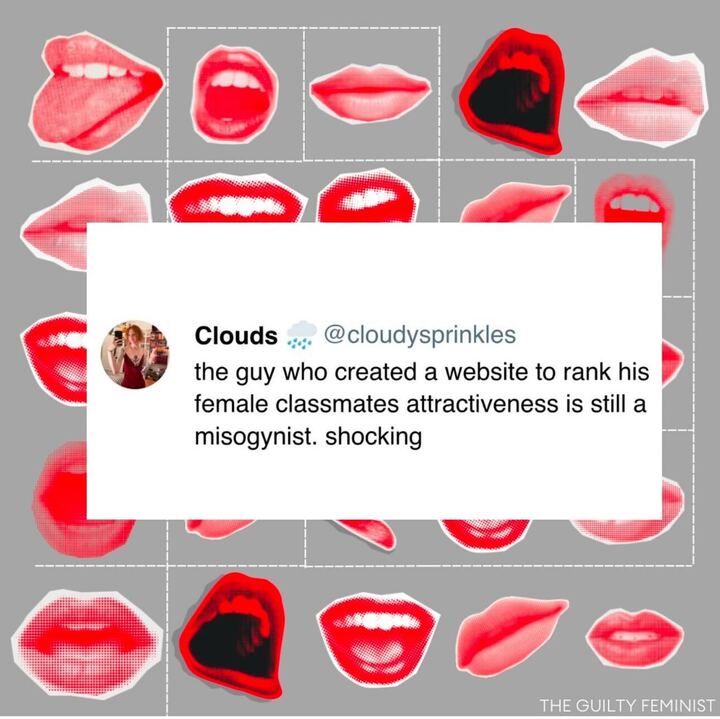Mark Zuckerberg thinks corporate culture needs *more* “masculine energy”
Big Tech’s love affair with ‘free speech’ hurts women and minorities the most


Mark Zuckerberg, billionaire tech giant and Meta CEO, wants to see a more aggressive corporate culture—should we be worried?
To round off an extraordinarily chaotic news week, Mark Zuckerberg appeared on Joe Rogan’s podcast announcing that companies need more “masculine energy”.
Zuckerberg, who, lest we forget, created Facebook as a platform for voting on a woman’s attractiveness, has never shied away from controversial opinions, but this new approach feels cannily catered towards a growing movement of free speech absolutists. In other words, he’s following Elon Musk’s playbook.
A post shared by The News Movement (@thenewsmovement)
A photo posted by on
In addition to calling the corporate world “culturally neutered” and proclaiming the benefits of a culture that “celebrates the aggression”, Zuckerberg spoke to Rogan about his plans to remove third-party fact-checking in favour of an X-model of community regulation.
The news, which has drawn the ire of many high-profile public figures such as Prince Harry and Meghan—who say the policy changes “should deeply concern us all”—has been defended by Meta. In a statement released by the newly appointed Joel Kaplan, who has taken over former UK Deputy Prime Minister Nick Clegg as Chief Global Affairs Officer, policy changes were described as: “a better way of achieving our original intention of providing people with information about what they’re seeing – and one that’s less prone to bias.”
Despite critics finding X’s crowdsourced Community Notes feature to be “mostly unhelpful” in tackling content moderation and misinformation, Zuckerberg said Meta will “phase in Community Notes in the US first over the next couple of months” according to an official press release. The same report, posted on the Meta Newsroom, goes on to cite X as the inspiration for this model of free speech and fact-checking, or lack thereof.
As one of the largest social media networks in the world, Meta has long been under scrutiny for its role in spreading false or misleading content. Fact-checking programs—once a key part of its strategy to combat this issue—provided a layer of scrutiny for posts that could potentially mislead or harm users.
Celebrity news, beauty, fashion advice, and fascinating features, delivered straight to your inbox!
Kaplan says that when Meta launched its independent fact-checking programme in 2016, they never intended to be “the arbiters of truth” and that in recent years, too much harmless content has been censored and “too many people find themselves wrongly locked up in ‘Facebook jail’”.

The worry here is that Meta relaxing its content moderation policies allows harmful rhetoric—namely misogyny and hate speech against women, LGBTQ+ individuals, and marginalised communities—to proliferate. Scrapping fact-checking and content bans—in much the same way Musk did when he bought Twitter (now X)—provides a space for extreme right-wing and misogynistic views to flourish.
Habiba Katsha, a reporter for People Of Color In Tech, says she’s worried about how the new Meta moves—which, like Amazon, also include scaling back its diversity initiatives—will lead to an increase of online abuse for people of colour. “As someone with over 18,000 followers on X, I’ve noticed a spike in online abuse since Elon Musk took over X and introduced the community notes feature.” says Katsha.
Despite both tech billionaires being criticised for contributing to the spread of misogyny and ultra-conservative ideologies, up until recently, neither explicitly aligned themselves with political parties or movements. Instead, they let their platforms and statements enable and amplify those narratives.
With Trump getting ready to return to the White House, the masks have officially fallen. Through their platforms and public personas, both are acting as willing enablers of a wider cultural shift that is amplifying conservative, often misogynistic voices. As one user on X put it: “Zuckerberg saying that workplaces have become too feminized is by far the craziest example of the vibe shift I’ve seen so far”.
The vibe shift critics are concerned about: Ultra-conservative, often anti-women and anti-minorities. Experts argue that Meta’s moves towards moderation—such as restoring accounts previously banned for spreading hate speech or misinformation—align with conservative movements that often propagate anti-feminist and anti-LGBTQ+ rhetoric.

Post featured on The Guilty Feminist
We’ve already seen how women and people of colour are primed to be targets. Within hours of Trump’s election win, the slogan “Your body, my choice. Forever” began circulating online, racking up millions of views. Around that time, Black people were targeted with hideously racist messages, which the FBI is still investigating.
Furthermore, a report published by Onyx Impact found that Black people are more likely to encounter disinformation and fake news. The biggest-ever UK survey into online violence against women also found that women are often targeted by online harassment and face the brunt of the misogynistic and far-right ideologies circulating on these platforms.
Despite their proclamations to the contrary, both Zuckerberg and Musk are amplifying harmful rhetoric and eroding online safety by prioritising ‘free speech’ at the expense of safer online environments. It’s unlikely these ideologies will stay confined to online spaces.

Mischa Anouk Smith is the News and Features Editor of Marie Claire UK.
From personal essays to purpose-driven stories, reported studies, and interviews with celebrities like Rosie Huntington-Whiteley and designers including Dries Van Noten, Mischa has been featured in publications such as Refinery29, Stylist and Dazed. Her work explores what it means to be a woman today and sits at the intersection of culture and style. In the spirit of eclecticism, she has also written about NFTs, mental health and the rise of AI bands.